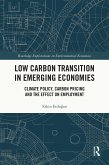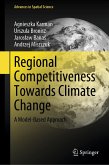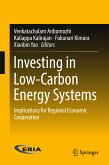Increasing carbon dioxide emissions from large-scale human activities have resulted in climate change and an increase in extreme weather events all around the world, resulting in significant human development crises. To overcome this issue, scientific consensus has been encouraging a global focus towards low carbon economics. For this purpose, the development of a framework for regional development cybernetics is an innovative approach. While the cybernetics approach requires that all sectors, such as industry, government, and citizens, and all levels, including global, national, and regional levels, engage in this closed-loop action, the implementation of climate strategies depends heavily on the regional level. Through the establishment of an innovative pedigree of model technologies, this book develops systematic quantificational methods, such as uncertain multi-objective programming models, systems dynamics model, econometric models, and ecological carrying capacity models, to simulate and solve the key issues affecting regional low carbon development, including greenhouse gas control, ecological capacity evaluation, regional economic prediction, energy structure optimization, land resource utilization, industrial structure adjustment, low carbon industrial chains, low carbon transportation systems and low carbon tourism. At the same time, decision makers are provided with many effective strategies to plan for regional low carbon development. This book also provides researchers with a new perspective from which to pursue solutions to key social problems using quantitative techniques. This book, with its focus on climate change, social science, economic development, low carbon economics, and management science, is ideal for researchers, practitioners, engineers, graduate students, and upper-level undergraduates.
Dieser Download kann aus rechtlichen Gründen nur mit Rechnungsadresse in A, B, BG, CY, CZ, D, DK, EW, E, FIN, F, GR, HR, H, IRL, I, LT, L, LR, M, NL, PL, P, R, S, SLO, SK ausgeliefert werden.









